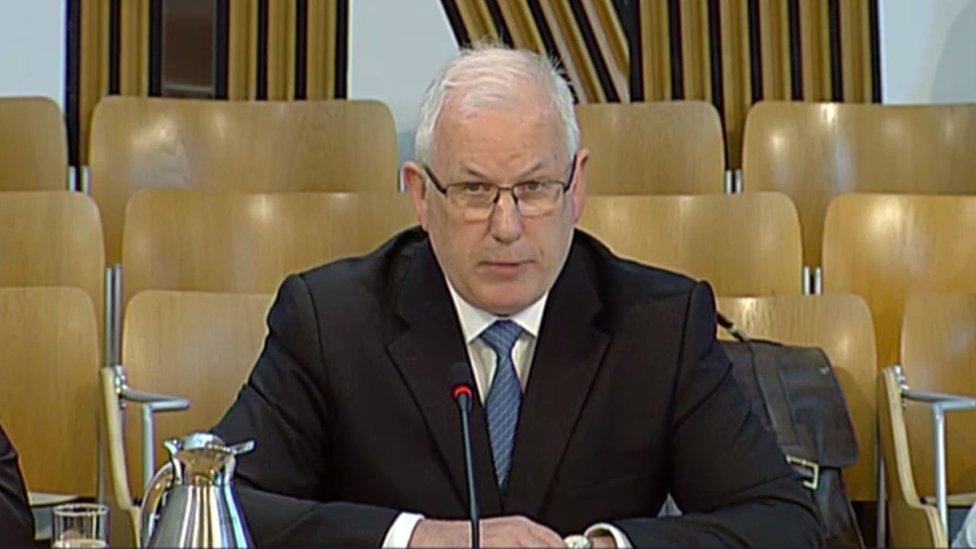Scottish police board chief Andrew Flanagan resigns
- Published
Andrew Flanagan said he did not want to be a distraction
Andrew Flanagan is to resign as chairman of the Scottish Police Authority.
Mr Flanagan had come under heavy criticism from two Holyrood committees over governance and transparency at the SPA, with MSPs calling for him to go.
In a letter to the justice secretary, Mr Flanagan said he would step down to avoid being a "distraction" to the new 10-year policing strategy.
He also said the "personalised" debate had "impacted on me and my family".
He will stay in post until a successor is appointed.
Justice Secretary Michael Matheson said a review of how the board can be supported "to take informed, transparent decisions" would be carried out.
Holyrood's public audit committee and the justice sub-committee on policing have both criticised Mr Flanagan, with the former raising "very serious concerns" and the latter saying they "do not have confidence" in his leadership.
The police watchdog is also investigating governance at the SPA after a board member quit amid a row over meetings being held behind closed doors and Mr Flanagan's failure to circulate critical correspondence.
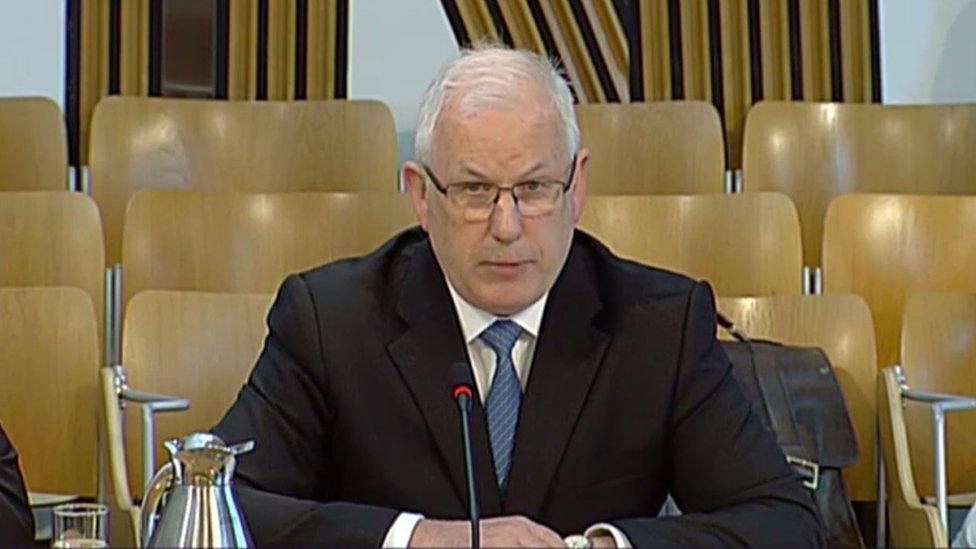
Andrew Flanagan had come under fire from two of Holyrood's committees
Mr Flanagan was appointed chairman of the SPA board in September 2015.
In his resignation letter, he said he had made "significant progress on a number of fronts", including putting together a long-term strategy and recruiting a new chief constable in Phil Gormley.
He said he had "put in place changes to the governance process" following recent criticism, but noted "prolonged and continued debate in the media and in parliament" which was "not helpful to the SPA or policing more generally".
He said he did not want the ongoing debate to "get in the way" of the 10-year policing strategy.
Mr Flanagan said the debate "has become quite personalised and has impacted on me and my family" and added: "This is not something that I wish to endure further."
He said: "I have therefore taken the decision that it would be in the best interests of policing if I were to step down from my role as chair of the SPA."
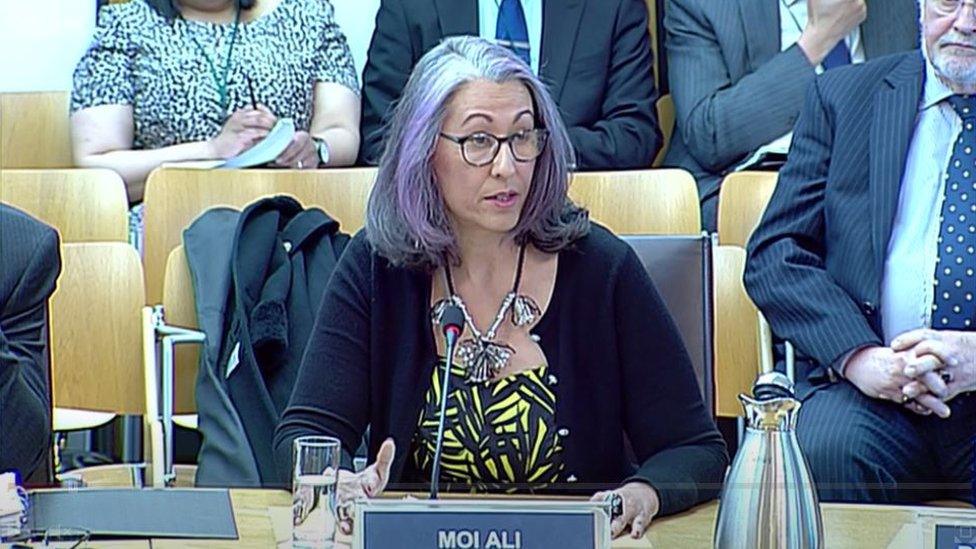
MSPs said Mr Flanagan had "acted inappropriately" over the exit of Moi Ali from the SPA board
The running of the board has become a long-running topic of controversy at Holyrood, amid a series of heated committee meetings.
During one hearing earlier this year, SNP MSP Alex Neil told SPA bosses that "it's not the Kremlin you're running".
The criticism stemmed from two main points: Mr Flanagan's failure to circulate a critical letter from the police watchdog, and a row over holding board meetings behind closed doors.
Board member Moi Ali said she had been told by Mr Flanagan that her expressing disagreement about these meetings publicly was a resignation matter, and said her "removal" from the board was "straightforward punishment for speaking out".
She said it was a "really horrendous experience" and that it would not have happened to her if she was a man, claiming Mr Flanagan was "not fit to continue on any public board".
In his resignation letter, Mr Flanagan said he had apologised to Ms Ali and made changes "to ensure there can be no perception of a lack of openness", including a pledge to hold board meetings in public whenever possible.
However, he also wrote about the "limited nature of these matters", and said it was "not the case" that there was a wider lack of transparency at the board.
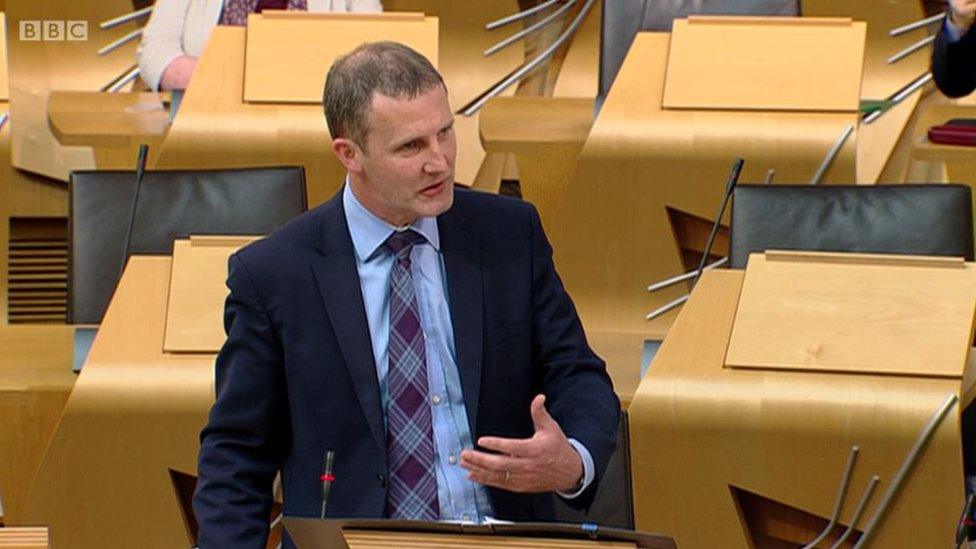
Michael Matheson announced a review of support for the SPA board
Announcing Mr Flanagan's resignation, Mr Matheson said a review would be carried out to consider how the board could be supported to take "informed, transparent decisions".
He said: "I am grateful to Andrew Flanagan for his significant contribution to policing, having become chair at a key time for the sector and brought a more strategic focus to the oversight of this key public service.
"However, he has acknowledged that mistakes have been made. He has offered a full and very public apology and made clear changes to transparency and governance in light of the concerns raised.
"I have agreed that he will stand down from his role once a successor is identified and recruited through the public appointments process. This will allow business continuity over this important period."
The review will be jointly led by Nicola Marchant, who was recently appointed deputy chairwoman of the SPA, and Malcolm Burr, chief executive of Comhairle nan Eilean Siar.
It will report back to Mr Matheson in the autumn.
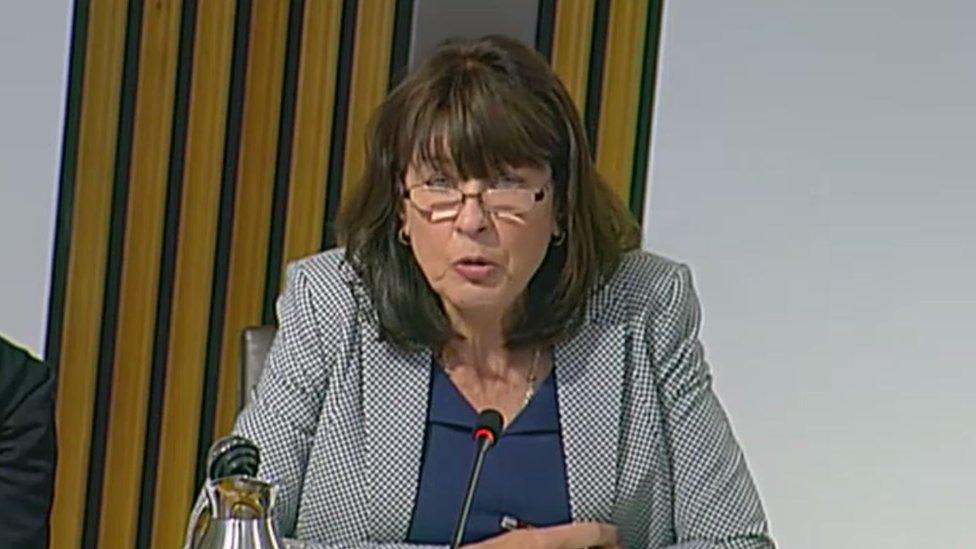
Mary Fee earlier said her committee was not confident Mr Flanagan accepted he was in the wrong
Mary Fee, convener of the justice sub-committee which was the first to declare it had no confidence in Mr Flanagan's leadership, said "openness and transparency have decreased during his time as chair of the SPA".
She said: "We should view this as an opportunity to work proactively with the SPA to put in place a chair who will lead the board in an open, transparent manner and take the SPA forward."
Jackie Baillie, acting convener of the public audit committee which led much of the questioning, said there had been "serious concerns" about Mr Flangan's leadership.
She said: "With the announcement of his resignation today, we hope the SPA will now head in the right direction and put an end to its culture of secrecy. This is desperately needed in order to restore public confidence."
Mr Flanagan's resignation was welcomed by political parties, with Scottish Conservative leader Ruth Davidson saying the move was "needed to allow the correct focus on oversight and delivery".
Labour's justice spokeswoman Claire Baker said it "must only be the start of the complete overhaul that is needed at the top of the SPA".
Green MSP John Finnie said Mr Flanagan "should have resigned weeks ago", while Lib Dem Liam McArthur said "serious damage has already been done to the reputation of the organisation".
- Published30 May 2017

- Published25 May 2017
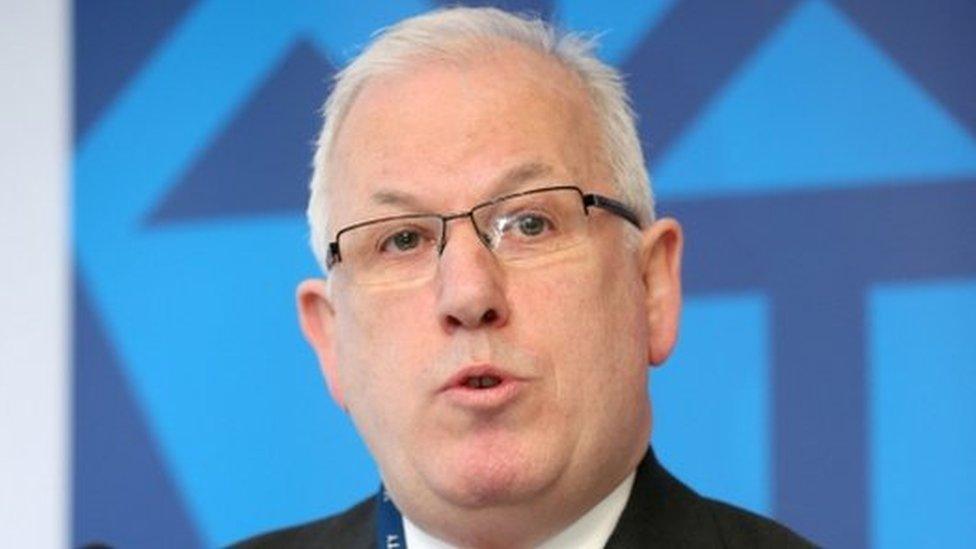
- Published18 May 2017
